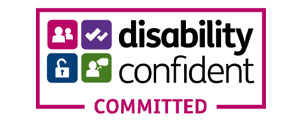Navigating the relationship between Chair and CEO – Top 5 takeaways
Before our recent 1st Time CEO Network session, we asked you ‘What one thing do you wish you’d known before becoming a chief executive’. The most common response we received from the network was that “is that it can feel very isolated being at the top.” It’s a role that you are living all the time and one that no one else, expect perhaps your Chair, will ever experience or fully comprehend in many respects.
In what was a lively and honest discussion, a reoccurring theme was that although you all face similar challenges – you have in fact all encountered a very different and diverse set of circumstances. These range from from inheriting trustees with no prior understanding of governance and issues with those who interfere beyond their remit, all the way to taking over from a founder who can’t let go or having to build a relationship with a chair who is also new to the role. One thing is clear, navigating your way as a CEO and establishing new rules of engagement whilst also trying to gauge what the ‘right’ relationship is between you, your Chair and the Board, has been a golden thread throughout. Our top five takeaways from the session, which we hope resonate with you personally are:
Avoiding blurred lines
Don’t assume the roles and relationship between CEO and Chair are already articulated – in actual fact, people bring their individual interpretation of this critical relationship to the role. Talking openly about it ensures you can achieve clarity of role and responsibility and fully understand where you are both coming from. Take steps as a new CEO to define it, and set expectations, at the earliest opportunity. Avoided negotiated relationships where priorities and divisions of responsibility aren’t clear.
Great Chair / CEO relationships are founded on mutual trust and respect
Investing time in getting to know your Chair, and where they are coming from, is a crucial step for a first time CEO in ensuring you are not working on shifting sands. Regular catch ups are an important part of working transparently and with ‘no surprises’, and being able to test out thorny agenda items that may arise now and again. Being honest and candid about what’s not going well with your Board is a strength; guests talked about the importance of being comfortable with their own vulnerability, for example when having to tell a Board that the organisation has challenges they weren’t aware of. The same openness helps to build confidence to push back if the Board starts overstepping boundaries.
Whose Strategy Is It Anyway?
There aren’t any real rules, it seems, in terms of how Strategy is treated – whether it should be developed and driven by the Executive, or whether it should be developed and initiated by the Board. First time CEOs would possibly benefit from understanding where in the organisation accountability for developing the strategy lies, ideally before they accept the role. Roles with a higher degree of influence often come with the requirement to lead on strategy.
Unity is the secret of success
Keep disagreements with your Chair outside of the Boardroom and avoid visible tension. Where you don’t agree on something, be sure to create proper space on your own to discuss the issues at stake and agree a reasonable way forward; you may sometimes need to create space with the whole Board for a full discussion.
It’s lonely at the top
The world we live in presents a challenging and complicated set of circumstances for anyone charged with running a charity. First-time CEOs are getting to grips with their executive leadership role, with the requirement to be a public face of their organisation with partners and stakeholders, and with the new ‘upward’ focus on their Board. At the same time, the demands on charities to do even more and go even further to meet need adds additional pressure, not just in volume of work, but the need to think differently about solving problems in a different world. Establishing strong and trusted support networks with peers or mentors is essential.
For more insight, advice and details of forthcoming events please contact Rebecca.OConnor@starfishsearch.com
Community cohesion, leadership and local government perspectives
A system-wide view of how community cohesion is being experienced, led, and constrained across different types of councils and places.
Rebuilding the scaffolding to repair communities
The MJ reports on Starfish’s survey and talks to councils about the scale of the challenge, and the need to appoint leaders who can build trust.
The new reality of visible leadership
Sunita Patel outlines how the need for community cohesion has presented an important challenge for today’s local leaders, and is affecting the way we recruit, support and retain them.
ACCREDITATIONS


ESPO is a public sector owned professional buying organisation (PBO), specialising in providing a wide range of goods and services to the public sector for over 40 years. Starfish Search has been awarded a place on ESPO’s Strategic HR Services framework (3S). Services we offer under the framework include: Lot 1, Executive and Managerial Interim Recruitment Lot 2, Executive and Managerial Permanent Recruitment.


Starfish are proud to be certified Disability Confident Committed. This scheme provides employers with the knowledge, skills and confidence needed to attract, recruit, retain and develop disabled people in the workplace.


Crown Commercial Service supports the public sector to achieve maximum commercial value when procuring common goods and services. In 2020/21, CCS helped the public sector to achieve commercial benefits equal to £2.04bn - supporting world-class public services that offer best value for taxpayers. Starfish Search has been named as a supplier on Crown Commercial Service’s Executive and Non-Executive recruitment. Services we offer under the framework include: Lot 3 - Non-Executive and Public Appointments.


Bloom, launched in 2012 is the UK’s leading marketplace for professional services. They provide an end-to-end solution for the procurement, contract management and payment of all professional services, via the compliant NEPRO³ framework. Their public sector clients have access to 20 professional services categories and over 4500 accredited suppliers. Bloom provides swift routes to market via either direct award or mini competition. Starfish is an accredited supplier to BLOOM; our services can be accessed via this framework - Executive and Non-Executive Search and Interim Management.
Join the starfish team
We hire people who bring insight, integrity and ambition to their work. If you’re ready to contribute to shaping the future of leadership and you want to explore our current opportunities please click the link below.
find out more